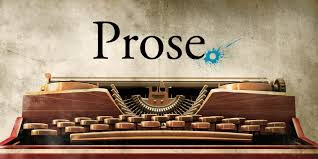Also Read
The conditions of the society of the 14th century are made clear by a glance at the Prose of the time. This prose is scarce and of slight literary value. Its chief interest lies in what information it gives us on the manners and tendencies of the age.
 |
| Prose : 14th century |
John Wyclif was the most powerful English figure of the fourteenth century. He took prominent part in the religious quarrels of the day. His interests were always the people rather than with the privileged classes for whom Chaucer wrote. He is often described as the father of English prose for his translation of the Bible. He himself translated The Gospels and much more of The New Testament. These translations were made from the Latin Vulgate, and not from the original Greek and the Hebrew. But many historians admit the uncertainty of the authorship of the translations, though they trace the influence of Wyclif in the translations. He wrote a large number of tracts and pamphlets. His English style is not polished but it is vigorous.
John Mandeville compiled and published a French book of travels between 1357 and 1371. It is thought that The Travels is a compilation from several popular books of voyages including those of Odoric and Marco Polo. The Travels is full of incredible descriptions and anecdotes. This book, though a translation, is historically important, being, in fact, the first prose work having a distinctly literary style and flavour.
Chaucer translated from Latin to English about the year 1381, The Consolation of Boethius. The two prose stories in his The Canterbury Tales are the tales of Melibeus and the Parson's Tale. His other book was on the Astrolobe, then a popular astronomical instrument. His prose works are characterised by tedious moralisings. His prose style, however, makes an advance. It shows stronger grasp of sentence structure and acurate vocabulary.